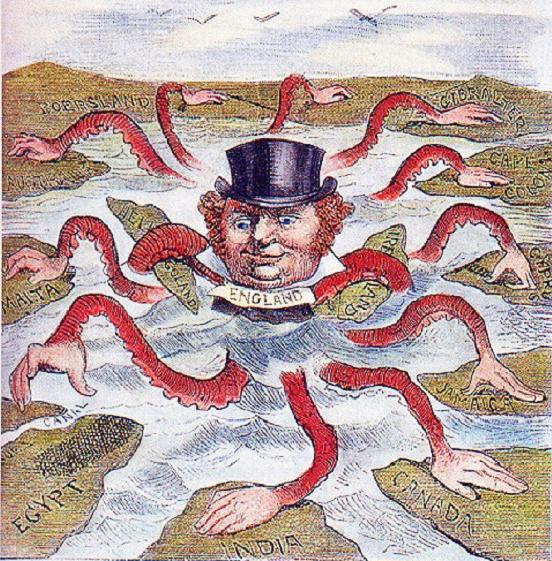This political cartoon is showing the leaders of the United Kingdom, Germany, Russia, France, and Japan dividing up a pie, which represents China. There is a Qing in the background throwing his hands up to try and stop them but he is powerless. The UK and Germany are squabbling over a borderland piece and the knife in the pie represents Germany's aggressive intentions. The leader of France not being in the cutting is shown as being diplomatic and her closeness to Nicholas II shows the Franco-Russian Alliance. It is meant to be a figurative representation of the imperialist tendencies of these nations towards China during the decade. Since the artist is French his opinion is that France is being the most diplomatic by going along with what Russia wants. I think that this cartoon shows how much each country was and wanted to be imperialistic in the way they are dividing up China.

This political cartoon is showing John Bull from England as the "octopus of imperialism". John Bull is a national personification of Great Britain. This is showing that during imperialism England had a hand in every part of the world. The author's opinion is that England was the most imperialistic nation of the time because of having a foothold in every part of the world. I think that this cartoon shows how powerful England was at the time because of how much territory it had.
This cartoon shows George W. Bush taking a stand against imperialism. It shows him criticizing Russia while he is standing on Afghanistan and Iraq and holding Israel on a leash with Palestine in its mouth. This shows that we have control of those four countries. The author's opinion is that Bush is being a hypocrite because he is bad mouthing Russia while he is controlling those countries he's standing on or holding. I think that this cartoon is right about what George W. Bush had been doing.









